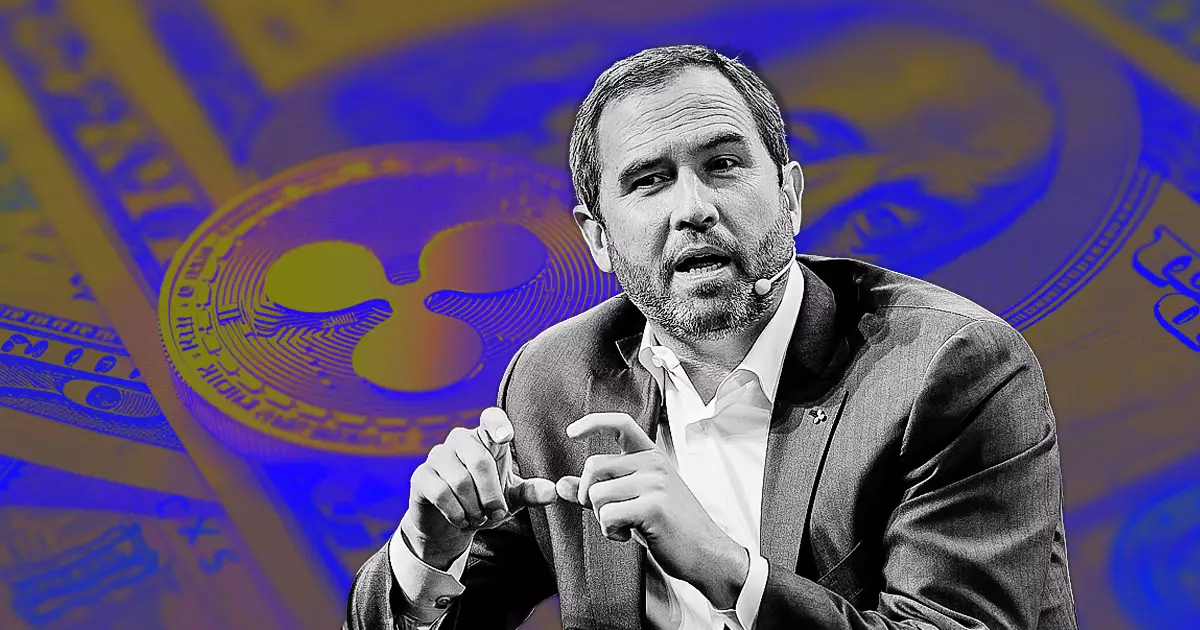The ongoing legal tussle between the Securities and Exchange Commission (SEC) and Ripple Labs continues to ignite passionate debates within the cryptocurrency community. The SEC’s recent decision to appeal a federal court ruling in its case against Ripple underscores the complexities and ramifications of regulatory oversight in the evolving digital asset landscape.
The legal saga began in December 2020, when the SEC launched a lawsuit against Ripple Labs, arguing that the company had engaged in an unregistered securities offering to the tune of $1.3 billion through the sale of XRP, its native cryptocurrency. This assertion raised fundamental questions about the classification of cryptocurrencies and the legal framework governing them. Ripple has long maintained that XRP is a digital currency and not a security, hoping to sidestep the stringent regulations that apply to traditional securities.
In August of the previous year, a pivotal ruling by U.S. District Judge Analisa Torres provided a mixed bag of outcomes for both parties involved. Judge Torres acknowledged the complexity surrounding the sale of XRP. She ruled that programmatic sales of XRP on public exchanges did not breach securities laws, a significant ruling that many in the crypto sector celebrated as a potential legal precedent. However, the judgment also confirmed that Ripple’s direct sales to institutional investors amounted to unregistered securities transactions, leading to a considerable fine of $125 million against the company.
The SEC’s decision to appeal this ruling, particularly the aspects that favor Ripple, paints a picture of an agency desperate to reaffirm its regulatory authority in an industry characterized by rapid growth and often murky legal status. Filed on October 2 to the Second Circuit Court of Appeals, this move indicates the SEC’s strategic intent to challenge the lower court’s interpretation of securities laws. The agency insists that the district court’s ruling conflicts with established Supreme Court precedent, casting a shadow over Ripple’s major legal win.
Ripple’s executives, including CEO Brad Garlinghouse and Chief Legal Officer Stuart Alderoty, expressed their frustration over the SEC’s appeal. Garlinghouse was particularly vocal in accusing the SEC of wasting taxpayer resources on prolonged litigation, claiming that the core issues of the case had, in fact, been decided in favor of Ripple. He maintains that despite the SEC’s contention, XRP’s standing as a non-security is now entrenched in legal precedent, making the agency’s pursuit seem futile.
The SEC’s move has had immediate repercussions, with XRP’s price suffering a notable decline following the announcement. Within 24 hours, the cryptocurrency experienced a drop of approximately 9%, trading just above $0.54. This decline reflects broader sentiments in the market, where investor confidence can waver amid regulatory uncertainties. As of October 3, 2024, XRP’s market capitalization stood at roughly $30.88 billion, with 24-hour trading volumes exceeding $2.54 billion. Such figures indicate the ongoing interest in the asset, even as external factors pose challenges.
The larger crypto market also felt the tremors of the SEC’s appeal, showcasing the sensitivity of digital assets to regulatory news. As Bitcoin dominance floated around 56.74%, the total cryptocurrency market was valued at approximately $2.12 trillion. The interplay between regulatory actions and market dynamics underscores the precarious balance that cryptocurrency players must navigate in this evolving landscape.
As this legal battle continues to unfold, it poses significant questions not only for Ripple and XRP but for the broader cryptocurrency ecosystem. Ripple’s leadership is already evaluating the possibility of a cross-appeal, showing that they are prepared to pursue multiple legal avenues to defend their position. Their assertion that there are no “victims or losses” involved in their XRP transactions only adds another layer of complexity to the case.
The SEC’s appeal may complicate clarity in the cryptocurrency space; however, it also raises the stakes for general regulatory frameworks governing digital assets. The outcome of this appeal could establish critical precedents for how cryptocurrencies are classified and regulated in the future, making it a pivotal moment for both Ripple and the broader crypto industry. As regulators and companies grapple with these issues, the need for a clear and practical legal framework is more pressing than ever. The eventual outcome of the SEC vs. Ripple case could profoundly shape the future of cryptocurrency regulation in the United States and beyond.


Leave a Reply